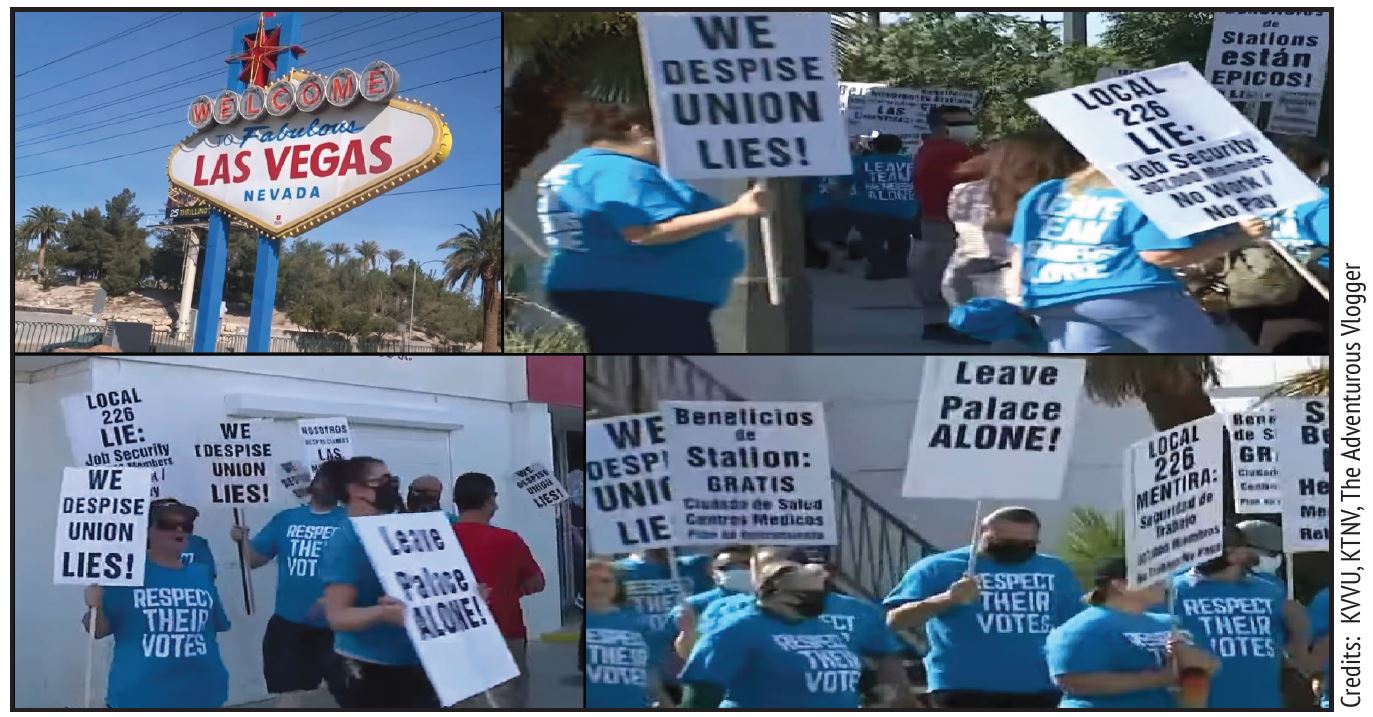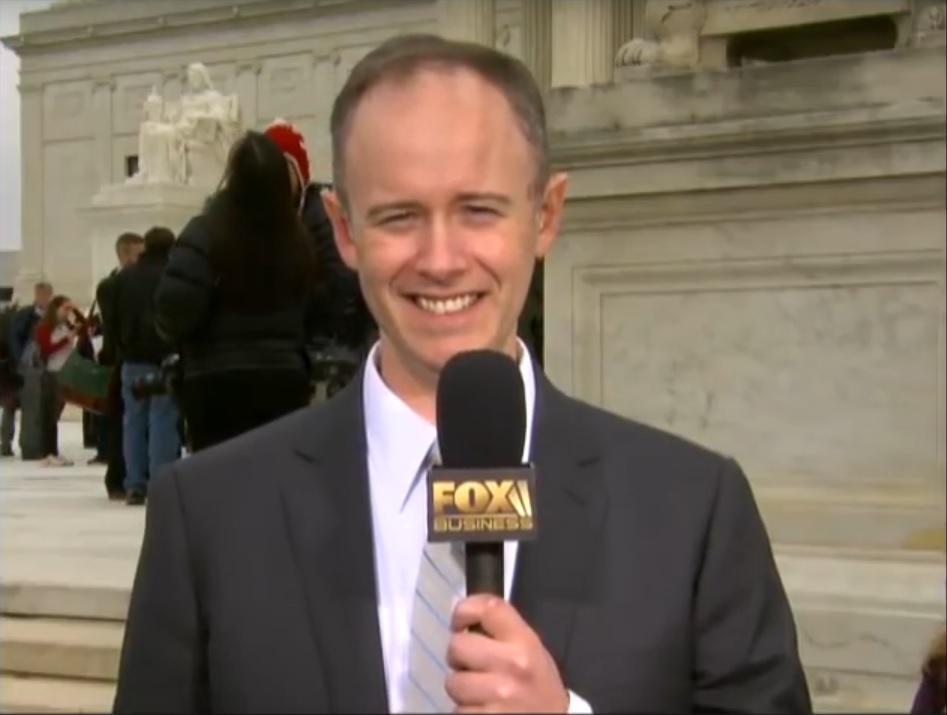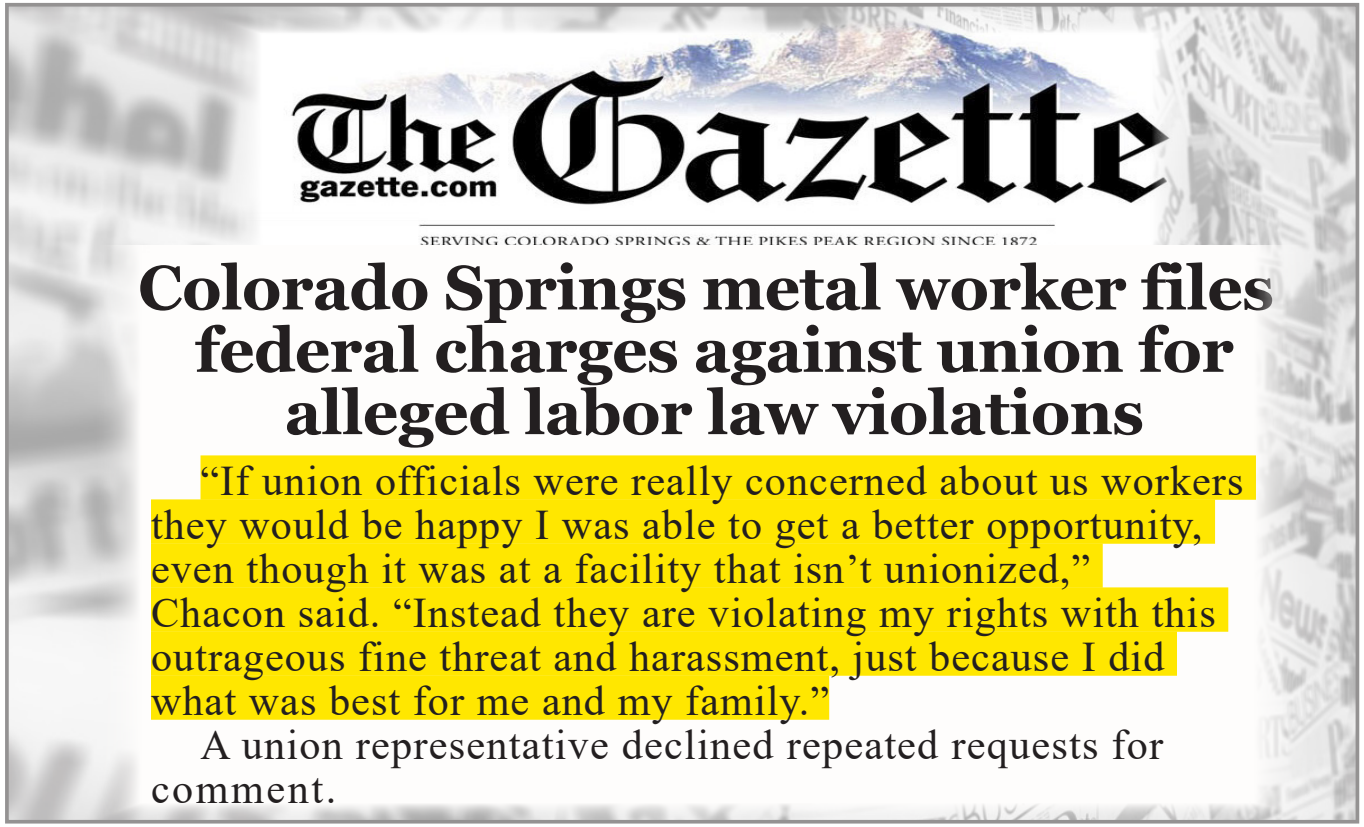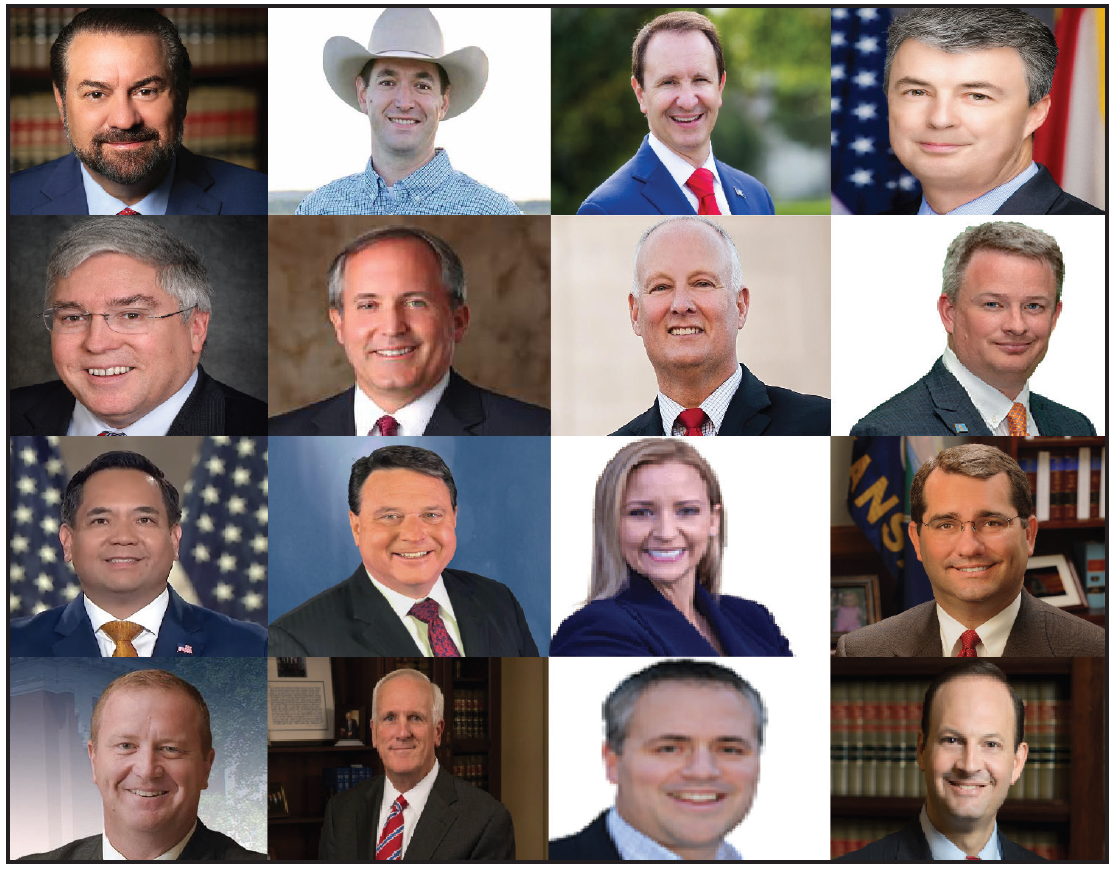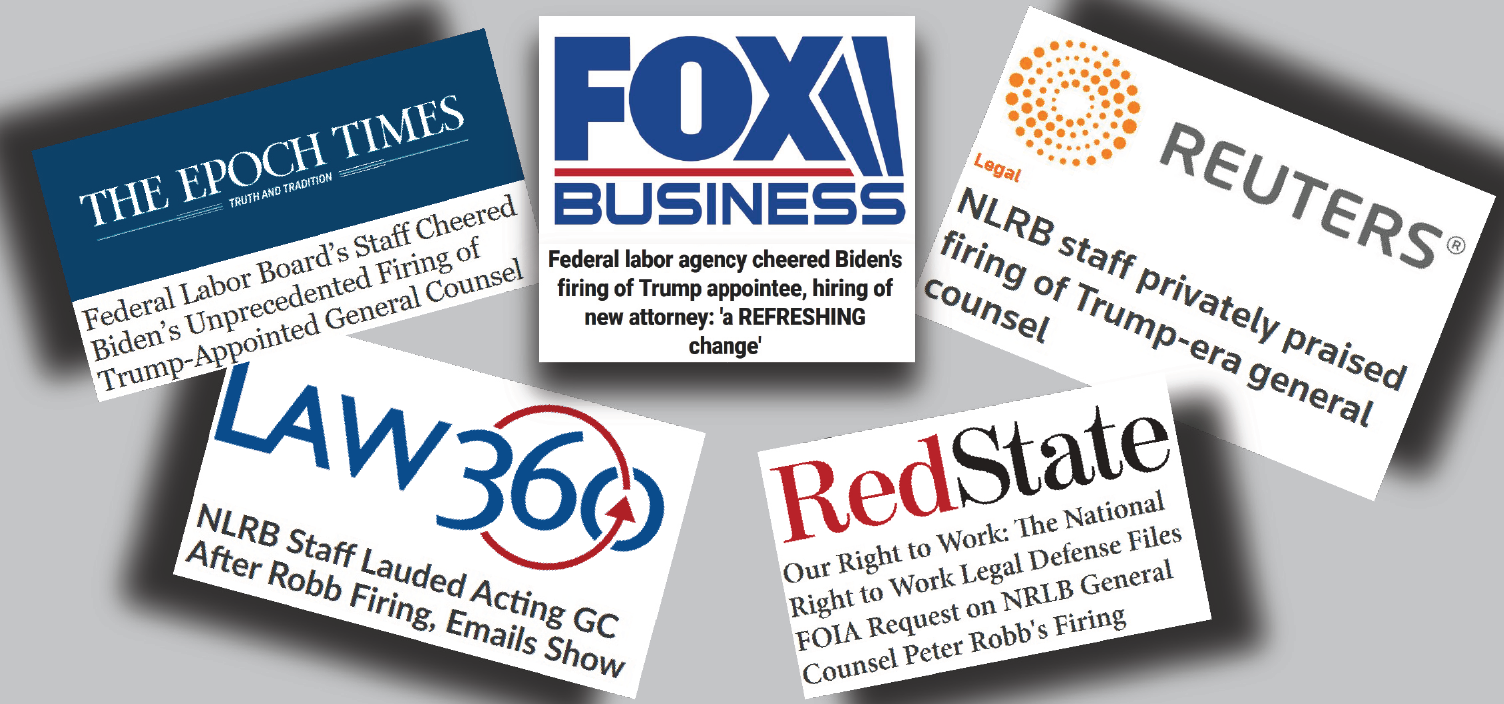Workers Who Voted Against Union Oppose Order Forcing Union on Them
The following article is from the National Right to Work Legal Defense Foundation’s bi-monthly Foundation Action Newsletter, November/December 2021 edition. To view other editions of Foundation Action or to sign up for a free subscription, click here.
Biden NLRB seeks to overturn vote of Red Rock Casino workers against Unite Here
Red Rock Casino employees bearing the messages “We Despise Union Lies” and “Respect Their Votes” protested outside Culinary Union headquarters in Las Vegas after union bosses tried to block Red Rock Casino workers’ emphatic vote to remove the union.
LAS VEGAS, NV – A large majority of the workers at Red Rock Casino in Las Vegas, Nevada, voted “no” to unionization, but a federal district court judge later issued an order forcing their employer to bargain with union officials anyway.
The Casino appealed the judge’s order to the U.S. Court of Appeals for the Ninth Circuit. National Right to Work Legal Defense Foundation attorneys assisted Red Rock food service employee Raynell Teske for free in filing her legal brief at the Ninth Circuit, arguing the judge was wrong to impose a union monopoly on the workers after the union had already lost an election.
Judge Overrides Workers’ Election Choice
In December 2019, the National Labor Relations Board (NLRB) administered a secret-ballot election on whether to unionize Red Rock. A majority of those voting rejected union officials’ effort to become their monopoly bargaining “representatives.”
Nevertheless, NLRB Region 28 Director Cornele Overstreet sought a federal court injunction demanding the union be imposed over the workers’ objections. On July 20, 2021, notoriously partisan Judge Gloria Navarro, appointed by Barack Obama, granted the NLRB Director’s request. She fired off a rare “Gissel” order forcing Red Rock to bargain with union officials despite the employees’ vote against unionization. The judge based her order on union officials’ claim that a majority of workers had signed union authorization cards before the vote. Teske’s legal brief argues that those “card check” signatures are unreliable, and not reason enough to conclude the union ever had majority support. After all, the level of union support was tested by the secret-ballot election and the results were clear: union officials received only 40% support from the eligible employees’ votes. As the Supreme Court has long recognized, secret ballots are a far more reliable way of gauging worker support for a union, because workers are often pressured, harassed, or misled by union organizers into signing cards.
Union Handbook Admits: ‘Card Check’ Is Unreliable
Unions themselves know that “card check” signatures do not reliably indicate worker support. The AFL-CIO admitted in its 1989 organizing handbook that it needed at least 75% card check support before having even a 50-50 chance of winning a secret-ballot election. An earlier guidebook acknowledged that some workers sign cards just to “get the union off my back.” Teske’s brief argues the union’s possession of so-called “cards” does not give union officials permission to take over, especially after they lost a secret-ballot election.
Brief: A Judge’s Order Shouldn’t Overturn Workers’ Clear Choice
The Foundation-aided brief urges that the “Gissel” order be overturned and says that imposing the union’s monopoly power despite the workers’ vote against it treats workers “like children” who did not understand what they were doing when they voted against union affiliation.
“Ms. Teske and her coworkers chose to reject unionization at the ballot box, but Judge Navarro decided to use her power to overturn the election,” said National Right to Work Foundation Vice President and Legal Director Raymond LaJeunesse. “Time and time again, we see workers pressured, misled and even bribed to sign union cards, which is why ‘Card Check’ is widely accepted as unreliable, especially compared to an NLRB-supervised secret-ballot election.”
“The Court of Appeals should promptly overturn Judge Navarro’s coercive order, and restore the actual choice workers made at the ballot box. Federal judges and NLRB bureaucrats cannot be allowed to override workers’ choices,” added LaJeunesse.
Foundation Opposes Biden Rule to ‘Authorize’ Illegal Union Skim of Medicaid Funds
The following article is from the National Right to Work Legal Defense Foundation’s bi-monthly Foundation Action Newsletter, November/December 2021 edition. To view other editions of Foundation Action or to sign up for a free subscription, click here.
Comments: Federal law prohibits diverting Medicaid funds away from homecare providers
Harris v. Quinn plaintiff Susie Watts (left) said her victory against forced dues for homecare providers was really a win for her disabled daughter Libby: “It’s not even about me as a homecare provider…They’re her benefits that are being siphoned off.”
WASHINGTON, DC – The National Right to Work Foundation filed formal comments with the Centers for Medicaid and Medicare Services (CMS), a division of the Department of Health and Human Services, asking the agency to reject an attempt to authorize state officials to redirect Medicaid funds into union coffers.
The Biden Administration’s pending proposal would overturn a 2018 Foundation-backed rule that confirmed that federal law prohibits union officials from skimming union dues payments from Medicaid funds intended for those who provide home-based assistance to people with disabilities. The Foundation’s comments argue that the Trump-era rule simply ensured that Medicaid regulations conformed to long-standing statutory law, and that the federal statute governing Medicaid prohibits diverting payments to any third parties, including unions and union PACs.
Under Obama, Union Bosses Cashed Out at Expense of Medicaid Recipients
The comments also detail the Obama Administration’s role in permitting union officials to violate the law, explaining that a special exemption created in 2014 by the Administration gave union officials legal cover to siphon upwards of $1 billion from Medicaid payments.
Union officials, especially at the Service Employees International Union (SEIU), have long used deceptive and even unconstitutional tactics to divert taxpayer-funded Medicaid payments into union coffers. Before the Supreme Court’s ruling in the Foundation-won 2014 Harris v. Quinn decision, homecare providers in over a dozen states were required to fund union activities. State governments automatically deducted fees from providers’ Medicaid payments even though such union dues diversions violated federal law regarding Medicaid funds. In Harris, the court held that mandatory union payments violate the First Amendment rights of homecare workers who do not wish to support union activities. Even after the Harris decision was issued, union officials continued seizing money from hundreds of thousands of providers across the country under cover of the Obama-era rule creating an exception to the prohibition against skimming Medicaid funds. Union officials used numerous underhanded tactics to keep the dues skim going, including, according to providers’ reports, claiming the dues payments were mandatory, blocking or ignoring requests to stop the deductions, and even forging signatures to authorize them.
Unlawful System Exists to Subsidize Union Politics
“[Home and Community Based Service] Medicaid payments are supposed to pay for care for the severely disabled,” the Foundation’s comments state. “Diverting these payments to third-party special interests to subsidize their political agendas, lobbying and recruitment campaigns is as unconscionable as it is unlawful” under the federal law governing Medicaid.
“What you’re seeing is a misuse of Medicaid funds being steered away from paying for care to disabled people and being used for politics,” Foundation staff attorney William Messenger, who argued Harris, told The Washington Free Beacon in its report about the Foundation’s comments. “They set up an entire system to pressure Medicaid providers to assign a portion of their Medicaid funds over to” union officials and their political action committees.
Under the 2018 rule, union officials may still collect payments from caregivers who voluntarily support union activities, but cannot use taxpayer-funded government payment systems to deduct the dues from Medicaid payouts. Voluntary union supporters could still personally make payments just as millions of Americans make regular payments to private businesses or other organizations.
“The Biden Administration’s plan to reauthorize the Medicaid union dues skim is a cynical ploy to allow their political allies to divert funds that federal law makes clear should be going to help those who are homebound or have significant disabilities,” observed National Right to Work Foundation Vice President Patrick Semmens. “Homecare providers’ own free choice should determine whether union bosses receive their support, not politically motivated, federally imposed special exemptions.”
University of California Lab Assistant Challenges California’s Anti-Janus Law
The following article is from the National Right to Work Legal Defense Foundation’s bi-monthly Foundation Action Newsletter, September/October 2021 edition. To view other editions of Foundation Action or to sign up for a free subscription, click here.
Employee wanted to stop dues but law let union bosses demand photo ID
Foundation staff attorney William Messenger scored a huge win for worker freedom in Janus. He’s now on Amber Walker’s legal team.
IRVINE, CA – California has long been at the forefront when it comes to promoting forced union dues. So when it became clear the Supreme Court would likely side with National Right to Work Foundation staff attorneys in the 2018 Janus v. AFSCME case, union boss allies in the California legislature quickly got to work passing laws to undermine public employees’ First Amendment rights. Among the most pernicious of the series of California’s anti-Janus laws is one that gives government union bosses unilateral control over which workers have dues money seized from their paychecks, even over the objections of those workers.
Now, with free legal representation from National Right to Work Foundation staff attorneys, University of California Irvine lab assistant Amber Walker is challenging the law in the U.S. District Court for the Central District of California, suing both the University of California system and University Professional and Technical Employees (Communications Workers of America, UPTE-CWA 9119) union officials.
Her case contends that the California statute, which makes public employers completely subservient to union officials on dues issues, let union bosses demand she provide a photo ID just to exercise her First Amendment right to stop union financial support. Her Foundation-provided staff attorneys argue that the California statute violates both due process and First Amendment guarantees.
In the Foundation-argued Janus v. AFSCME Supreme Court case, the Court declared that forcing public sector workers to fund unions as a condition of employment violates the First Amendment. The Justices also ruled that union dues can only be taken from a public employee with an affirmative and knowing waiver of that employee’s First Amendment right not to pay.
“The University is leaving me helpless against these union officials who just seem to want to take my money despite the fact that I clearly don’t want to be part of the union,” Walker told a Los Angeles Times reporter. “The Janus decision said that I should have a choice when it comes to supporting a union, but UPTE has been denying me my rights and the university is letting the union get away with it.”
Statute Prevents Workers from Telling University Admin to Stop Illegal Takings
Walker’s lawsuit explains that she sent CWA union bosses a letter in June 2021 exercising her right to end her union membership and all union dues deductions from her wages. Although Walker submitted this message within a short annual “escape period” that CWA officials impose to limit when workers can revoke dues deductions, they still rebuffed her request, telling her she needed to mail them a copy of a photo ID to effectuate her revocation.
The photo ID requirement, seemingly adopted purely to frustrate workers’ attempts to exercise their constitutional rights, is mentioned nowhere on the dues deduction card Walker had previously signed to initiate dues payments.
Lawsuit: Union Officials Should Not Control Workers’ First Amendment Rights
UC Irvine and CWA officials are still seizing cash from Walker’s paycheck, and will likely continue to do so for at least another year as the CWA’s arbitrary and short annual “window period” elapsed by the time CWA officials notified Walker that her attempt to stop dues was rejected for lack of photo ID.
The university administration can’t stop dues payments for Walker because of the California statute that gives union officials total control over union dues deductions.
Foundation staff attorneys state in Walker’s complaint that, because of the California statute, CWA officials were able to trample Walker’s desire to keep her own money and were allowed to infringe on her First Amendment Janus rights.
Walker seeks refunds of the dues taken from her and other university workers under CWA’s photo ID scheme. She also seeks to stop the State of California from enforcing the state law outsourcing the process for stopping and starting union dues deductions to self-interested union officials.
UPTE Bosses Designed Scheme Knowing CA Law Would Protect Them
“California CWA union bosses clearly value illegally filling their coffers with Ms. Walker’s money over respecting her First Amendment and due process rights,” commented National Right to Work Foundation Vice President and Legal Director Raymond LaJeunesse. “They created this photo ID requirement out of thin air to block workers from exercising their Janus rights, safe in the knowledge that California’s union dues policies would stifle any chance a public worker has of getting his or her employer to stop seizing dues money for the union.”
“By giving union bosses total control over how and when workers can exercise their First Amendment Janus right to stop dues payments, California is allowing the fox to guard the henhouse to the detriment of public employees’ constitutional rights,” added LaJeunesse.
NLRB Keeps Union Bosses in Power Despite Unanimous Opposition
The following article is from the National Right to Work Legal Defense Foundation’s bi-monthly Foundation Action Newsletter, September/October 2021 edition. To view other editions of Foundation Action or to sign up for a free subscription, click here.
Labor Board seeks to force company to “bargain” with union opposed by all workers
Foundation attorneys argued that NLRB bureaucrats are treating Neises Concrete Construction Corp. workers like “children” and not “freethinking individuals” by forcing them under the control of an IKORCC union none of them support.
WASHINGTON, DC – The National Labor Relations Board (NLRB) refused to overturn a decision that blocked an employee’s decertification petition and allowed union bosses to remain in power at a workplace despite no employee support for the union.
After a regional NLRB official declined to allow the vote to go forward, Neises Construction Company employee Mike Halkias challenged the ruling blocking his unanimous petition for a vote to remove the union with free legal aid from the National Right to Work Legal Defense Foundation. In July, the Labor Board in Washington, DC, upheld NLRB Region 13’s decision to dismiss the unanimous decertification petition.
The petition was filed by workers at Neises Construction Company in Crown Point, Indiana. None are members of the Indiana/Kentucky/ Ohio Regional Council of Carpenters union (IKORCC), but federal law allows IKORCC union bosses to act as the workers’ “exclusive bargaining representative.”
Pro-Forced-Unionism Ruling Treats Workers Like ‘Children’
Though the petition had support from every member of the bargaining unit, the NLRB regional office rejected the petition, pointing to ongoing litigation between IKORCC and Neises over negotiations for the workers’ contract.
Before it will give workers a chance to remove union bosses, the NLRB said, unbelievably, that Neises must bargain with IKORCC officials for a union monopoly contract, even though no Neises employee supports the union or wants it to bargain for them. The Region used the union’s active legal dispute with the employer to justify dismissing the workers’ petition for a decertification vote.
Foundation attorneys argued in their appeal to the full NLRB that the employer’s dispute with IKORCC bosses should not take away the workers’ right to remove the unwanted union. As the appeal stated, “Halkias and his fellow employees are not children, but freethinking individuals who have the right to dislike the union for a host of reasons having nothing to do with Neises or the Union’s unproven, unadjudicated allegations.”
NLRB Outrageously Kills Worker Effort to Remove Unwanted Union Bosses
The appeal implored the Board to, at the very least, investigate whether the alleged employer wrongdoing had diminished the employees’ ability to make an informed choice about union boss “representation.”
Instead, the Board denied the workers’ appeal, accepting the Region and union officials’ reasoning that the pending employer charges should block the workers’ request for a vote. The workers at Neises remain under union “representation” they unanimously oppose. Foundation attorneys argued that NLRB bureaucrats are treating Neises Concrete Construction Corp. workers like “children” and not “freethinking individuals” by forcing them under the control of an IKORCC union none of them support.
“It is beyond outrageous that federal law lets union bosses force workers to accept unions’ so-called ‘representation’ against their will — even when workers unanimously oppose the union,” said National Right to Work Legal Defense Foundation Vice President Patrick Semmens. “Federal law purports to protect workers’ ‘freedom of association’ and to ensure union representation ‘is of their own choosing,’ however, as this case demonstrates, the NLRB frequently protects union boss power to the detriment of workers’ freedom.”
“This outcome shows how federal labor law is broken,” added Semmens. “These workers simply want a vote to remove a union they oppose, yet the NLRB response is not only to block any such vote but also to seek to force their employer to bargain further with a union supported by precisely zero rank-and-file workers.
Victory: CO Worker Wins Against Union Bosses Who Demanded Illegal $21,000 Fine
The following article is from the National Right to Work Legal Defense Foundation’s bi-monthly Foundation Action Newsletter, September/October 2021 edition. To view other editions of Foundation Action or to sign up for a free subscription, click here.
Union must back down after trying to punish worker who left union, found new job
Foundation staff ensured Russell Chacon’s frustrations with Sheet Metal union bosses’ illegal fines were covered by the Colorado Springs Gazette. Shortly after the article appeared, Sheet Metal union officials backed down from their demand.
COLORADO SPRINGS, CO – Colorado metal worker Russell Chacon was angry when he received a letter from International Association of Sheet Metal, Air, Rail, and Transportation Workers (SMART) Local 9 union officials in May, demanding he pay $21,252 in disciplinary fines. Six months earlier he had resigned his union membership, and had left his job at Colorado Sheet Metal to work for Rocky Mechanical, an employer that isn’t under the control of Sheet Metal union bosses.
Union officials demanded Chacon fork over the ruinous sum to cover an alleged union “loss of funds” for a period through May 31, which included days that Chacon had not even worked yet.
Sheet Metal Union Officials Violated Established Law to Harass Worker
Chacon obtained free legal representation from National Right to Work Foundation staff attorneys and filed federal unfair labor practice charges against the Sheet Metal union at National Labor Relations Board (NLRB) Region 27 in Denver. He asserted that the fines were levied against him specifically in retaliation for his leaving the union and finding new work.
Soon after the Foundation-assisted charges, Sheet Metal union officials dropped the illegal fine demands, and are now forced by a settlement to inform workers that they will not subject them to internal union discipline if they exercise their right to end union membership.
Decades-old federal law prohibits union officials from forcing internal union discipline on workers who have resigned union membership, and from restricting the exercise of that basic right to refrain.
“If union officials were really concerned about us workers they would be happy I was able to get a better opportunity, even though it was at a facility that isn’t unionized,” Chacon told the Colorado Springs Gazette in May. “Instead they are violating my rights with this outrageous fine threat and harassment, just because I did what was best for me and my family.”
Although Sheet Metal union bosses informally rescinded their fine demands soon after Chacon filed his charge, NLRB Region 27 continued to investigate Chacon’s charge that union officials had instigated the discipline specifically in retaliation for his leaving the union.
Settlement Follows NLRB Finding Merit in Worker’s Charges of Retaliation
The NLRB found merit in Chacon’s claims of retaliation in July, forcing union officials to settle in order to avoid NLRB prosecution.
The settlement requires Sheet Metal union officials to post a notice at the union office stating that they “will not fail to inform or misinform you about the proper process for resigning your membership,” “will not fail to give effect to resignations of membership from the Union,” and “will not restrain and coerce you by instituting and prosecuting disciplinary proceedings and levying fines after failing to give effect to resignations.” The notice also confirms that Chacon is no longer subject to the fine demands.
“As the conclusion of this case shows, Sheet Metal union officials were caught red-handed violating workers’ most basic right to refrain from associating with an organization to which they don’t want to belong,” commented National Right to Work Foundation Vice President and Legal Director Raymond LaJeunesse. “Although we are pleased that Mr. Chacon is no longer saddled with an outrageous fine demand, unfortunately other Colorado workers can still be forced to pay dues to union bosses because The Centennial State lacks a Right to Work law.”
LaJeunesse continued, “Right to Work protections ensure that all union financial support is strictly voluntary, and that no worker can be fired just for refusal to pay dues to unwanted union bosses.”
Foundation Assists Workers in Kicking Out Unwanted Union Bosses
The following article is from the National Right to Work Legal Defense Foundation’s bi-monthly Foundation Action Newsletter, September/October 2021 edition. To view other editions of Foundation Action or to sign up for a free subscription, click here.
Worker decertification efforts target SEIU, Teamsters union officials
Desert Springs “Decert”: Tammy Tarantino (third from left) and her fellow healthcare workers at Desert Springs Medical Center booted SEIU union bosses from their workplace with Foundation aid, voting by a 3-1 margin for decertification.
CHICAGO, IL – Workers in three different states recently waged successful campaigns to remove the union bosses who controlled their workplaces. In each instance workers utilized free legal assistance from National Right to Work Legal Defense Foundation staff attorneys to navigate the overly-complicated process for getting a vote to remove an unwanted union.
The National Labor Relations Act (NLRA) — which is enforced by the National Labor Relations Board (NLRB) — gives workers the right to hold a decertification vote to end union officials’ monopoly bargaining power over workers. In theory, under the NLRA, workers who collect signatures from 30 percent of a workplace can hold a decertification vote at any time, provided there has not been a unionization vote there in the previous 12 months.
However, because of complicated NLRB doctrines compounded by union legal tactics, obtaining a vote to decertify a union can often be a challenge. That’s why workers in workplaces across the country turn to the Foundation for free legal aid as they seek to hold such a vote.
Workers’ ability to exercise their right to vote out an unwanted union is especially important in states without Right to Work protections, where union bosses can use their monopoly bargaining powers to force every worker to pay union dues or fees or else be fired.
But workers’ right to decertify a union is still critical in Right to Work states, because even without forced union payments, federal law gives union bosses the power to impose their so-called “representation” and resulting union monopoly contracts on members and non-members alike at unionized workplaces. Only once a union is decertified are workers free to represent themselves and communicate with their employer directly.
Foundation Helps Workers Navigate Tricky Legal Process
Highlighting recent activity, three separate workplaces have waged successful decertification efforts.
Petitioner Tim Mangia led the charge at Chicago’s Rush University Medical Center, where he and his fellow maintenance workers voted to remove Teamsters union bosses by a better than 3-1 margin. Separately, in Del Rio and Eagle Pass, Texas, salesmen for Frito-Lay also voted to free themselves from unwanted Teamsters union “representation” following free assistance from Foundation legal staff.
Meanwhile, Tammy Tarantino and her fellow technical employees at the Desert Springs Hospital Medical Center in Las Vegas successfully removed a Service Employees International Union (SEIU) local from their workplace with Foundation help.
Reforms: Union Bosses Can’t Use Bogus Charges to Block Decertification Elections
These cases proceeded without significant delays from union “blocking charges,” the often spurious charges against employers filed by union lawyers seeking to delay a decertification vote. Under old NLRB rules, such charges would have to be resolved before workers’ decertification votes could proceed, delaying the vote for months or even years.
Thanks to NLRB rulemaking advocated by the Foundation and backed by thousands of Foundation supporters, votes now virtually always proceed first with the results quickly announced, so that elections cannot be delayed nearly indefinitely by unsubstantiated union boss claims.
In the Las Vegas medical workers’ case, the new “blocking charge” rules allowed Tammy Tarantino continued from page 2 to have a vote, despite attempts by union lawyers to use charges against the hospital to delay the election. Without being able to rely on the “blocking charge” policy to maintain their power over the workplace, SEIU officials soon found themselves voted out with just 13 of 64 eligible voters voting for the union.
“While we look forward to the day when every individual worker has the freedom to decide whether to pay union dues or be represented by a union, it is especially egregious when union bosses are in power without even the support of a bare majority of rank-and-file workers,” said National Right to Work Foundation Vice President Patrick Semmens. “The National Right to Work Foundation is proud to help workers exercise their right to throw off the yoke of unwanted union so-called ‘representation.’”
Sixteen States Back Foundation’s Petition to High Court in Chicago Educator Case
The following article is from the National Right to Work Legal Defense Foundation’s bi-monthly Foundation Action Newsletter, September/October 2021 edition. To view other editions of Foundation Action or to sign up for a free subscription, click here.
Amicus brief: Unions “refuse to stop collecting dues despite unequivocal employee demands”
“Janus has been ignored,” wrote sixteen attorneys general in their amicus brief supporting Ifeoma Nkemdi and Joanne Troesch’s petition pressing the Supreme Court to hear their case and declare “escape periods” a First Amendment violation.
WASHINGTON, DC – In July, sixteen attorneys general threw the support of their states behind Chicago Public Schools educators Ifeoma Nkemdi and Joanne Troesch, who are urging the U.S. Supreme Court to hear their case defending their First Amendment right to cut off union financial support as recognized in the Foundation-won Janus v. AFSCME decision.
In an amicus brief encouraging the High Court to hear the case, attorneys general from Alaska, Alabama, Arizona, Arkansas, Indiana, Kansas, Louisiana, Missouri, Montana, Nebraska, South Carolina, South Dakota, Tennessee, Texas, Utah, and West Virginia argue that “escape period” restrictions like the one that Chicago Teachers Union (CTU) bosses foisted on Troesch and Nkemdi are a widespread threat to public employees’ rights under the Janus Supreme Court decision.
In 2018, the Supreme Court ruled in Janus v. AFSCME that public employees’ First Amendment rights are violated when they are forced to fund a union as a condition of employment. The Court also held that union dues can only be taken from a public employee with an affirmative and knowing waiver of that employee’s First Amendment right not to pay.
Unions Are Seizing Money from ‘Tens of Thousands’ Unconstitutionally, Brief Says
The CTU-concocted “escape period” Nkemdi and Troesch are challenging blocks employees from exercising their First Amendment Janus right to end union financial support except during one month per year. The educators’ petition for writ of certiorari presses the High Court to hear their case to affirm that Janus does not permit union bosses to profit from schemes that constrict workers’ constitutional right to refrain from subsidizing a union.
The states’ amicus brief emphasizes how glaringly union officials have flouted Janus with restrictions, as well as how widespread the schemes are: “Janus has been ignored. Across the country public-sector unions have resisted Janus’s instructions and devised new ways to compel state employees to subsidize union speech. Unions place onerous terms on dues forms that prohibit state employees from opting out of paying dues except during narrow (and undisclosed) windows during the year.”
The brief continues: “Unions refuse to inform state employees that they have a First Amendment right not to pay union dues. And unions refuse to stop collecting dues despite unequivocal employee demands. The result is that tens of thousands of state employees across the country are having dues deducted to subsidize union speech without any evidence that they waived their First Amendment rights . . . .”
Nkemdi and Troesch’s case “implicates these precise concerns” and the Court must hear it, the brief maintains.
In addition to the states’ brief, policy groups Goldwater Institute, Cato Institute, Freedom Foundation, and Liberty Justice Center filed amicus briefs backing the case.
Justices May Already Be Showing Interest in Foundation-Backed Case
In late July, the Supreme Court ordered lawyers for CTU and the Chicago Board of Education to file a response brief to Troesch and Nkemdi’s petition, a signal that some Justices may be interested in taking up the case.
Also pending at the High Court is Foundation attorneys’ anti- “escape-period” case for Susan Fischer and Jeanette Speck, two New Jersey teachers. Both that case and Troesch and Nkemdi’s case are expected to be fully briefed in October, after which the Justices will decide whether to take them.
“As union bosses continue to use deceptive ‘escape period’ arrangements to keep worker money flowing unconstitutionally into their coffers, support continues to roll in from across the country for Troesch and Nkemdi, who are sticking up for independent-minded public servants who simply want to serve their communities without being forced to fund union activities,” observed National Right to Work Foundation President Mark Mix. “The High Court must weigh in to affirm that public workers’ First Amendment rights cannot be confined to union officials’ arbitrary schedules.”
Ohio Worker Defeats Unconstitutional ‘Administration Fee’ Imposed by IUOE Bosses
The following article is from the National Right to Work Legal Defense Foundation’s bi-monthly Foundation Action Newsletter, July/August 2021 edition. To view other editions of Foundation Action or to sign up for a free subscription, click here.
Union officials tried to rename forced fees outlawed by Janus Supreme Court victory
Above are just a few of the other Buckeye State public servants whom Foundation staff attorneys have aided in safeguarding their First Amendment Janus rights since that case was decided in 2018 by the Supreme Court.
CINCINNATI, OH – City of Hamilton (OH) employee Timothy Crane has successfully defended his First Amendment right to refrain from funding the International Union of Operating Engineers (IUOE) Local 20 hierarchy in his workplace.
Crane, who is not a union member, filed a lawsuit in December 2020 with free legal aid from the National Right to Work Foundation that challenged so-called “agreement administration fees” that IUOE officials forced him to pay as a condition of keeping his job. IUOE bosses have now backed down by eliminating the forced-fees scheme and have refunded to Crane all fees that they seized from him under that arrangement.
Crane’s lawsuit maintained that the “agreement administration fee” requirement violated his rights under the Foundation-argued 2018 Janus v. AFSCME Supreme Court decision. In Janus, the High Court ruled that no public worker can be coerced into paying union dues or fees as a condition of getting or keeping a job, and that union dues and fees can only be deducted from public servants’ paychecks with their affirmative and knowing consent.
The Court reasoned that, because all public sector union boss activities are directed at the government, forcing a public sector employee to pay anything to union officials counts as forced political speech and for that reason violates the First Amendment.
IUOE Officials Seized Deceptive Fee after Worker Exercised Janus Rights
“This case was about protecting my right to not pay for a political agenda that I oppose,” Crane told the Hamilton Journal-News this May. “I’m in favor of fair wages and a safe working environment. What I’m not in favor of is a union using my hard earned money to support a political party that I disagree with and that is dividing the country.”
According to Crane’s lawsuit, he sent letters to IUOE union officials in both August and September of last year attempting to exercise his First Amendment Janus right to end dues deductions from his paycheck. After sending these two letters, he discovered that instead of dues an “agreement administration fee” was being taken from his pay by municipal officials at the behest of IUOE union bosses.
His suit contended that this fee was indistinguishable from a so-called “agency fee” — a forced union payment charged to employees who refrain from formal union membership that was definitively outlawed by the Janus decision — and therefore unconstitutional despite masquerading under a different name.
Five Similar Illegal Dues Schemes Now Bucked by Buckeye State Employees
With this victory, Crane’s suit is now the fifth resolved favorably by Foundation staff attorneys for Buckeye State employees whose First Amendment Janus rights were being restricted by Ohio government union bosses.
This includes the July 2020 victory in the Allen v. AFSCME case, in which nearly 30,000 Ohio public employees were freed from an “escape period” scheme imposed by Ohio Civil Service Employees Association (OCSEA) union chiefs. That scheme limited to just a handful of days every few years the time when a public employee could exercise Janus rights.
“Once again, a Foundation-backed Ohio public employee has prevailed over a duplicitous attempt by union officials to keep worker money flowing illegally into union coffers while trampling workers’ First Amendment rights,” observed National Right to Work Foundation Vice President and Legal Director Raymond LaJeunesse. “The fact that Ohio union bosses have backed off enforcing these schemes several times now shows that they know the arrangements cannot stand up to serious legal scrutiny. With that in mind, Ohio public servants should not hesitate to reach out to the Foundation to defend their Janus rights.”
Foundation Freedom of Information Act Request Exposes NLRB Bias against Workers
The following article is from the National Right to Work Legal Defense Foundation’s bi-monthly Foundation Action Newsletter, July/August 2021 edition. To view other editions of Foundation Action or to sign up for a free subscription, click here.
Emails show NLRB insiders cheered Biden’s unprecedented attack on agency’s ‘independence’
After Foundation attorneys’ FOIA request revealed pro-Biden bias pervading the “independent” NLRB, Foundation staffers secured coverage for the findings in some of the nation’s top outlets.
WASHINGTON, DC – National Right to Work Foundation attorneys have uncovered, through a Freedom of Information Act (FOIA) request, National Labor Relations Board (NLRB) staff emails that expose the partisan response to unprecedented power grabs launched by the Biden Administration at the behest of Organized Labor.
Biden Power Grab Prompts Records Request
The FOIA request was filed to provide further details surrounding Biden’s unprecedented and legally dubious removal of Trump-appointed NLRB General Counsel Peter Robb, who had sided with Foundation-represented workers in several cases in which they sought to resist union boss coercion. The emails show widespread partisan bias throughout the agency, which is charged with neutrally enforcing federal labor law.
Under long-standing federal law, the NLRB General Counsel has unreviewable authority to prosecute unfair labor practice charges, including those brought by workers against union officials. To protect that authority from blatant political interference, Congress gave the General Counsel a four-year term. Once appointed by the president and approved by the Senate, no General Counsel in the history of the NLRB had ever been fired. That changed when, just minutes after Biden took office on January 20, 2021, his administration moved to fire Robb despite 11 months remaining on his term.
NLRB Officials Celebrated Biden Attack on Labor Board’s Top Prosecutor
Following Biden’s election with the backing of Big Labor officials who wanted to shield themselves from accountability at the NLRB, Biden was encouraged by union bosses to remove General Counsel Robb and replace him with a union partisan. Five days after the removal of Robb, Biden fully obliged, selecting career NLRB bureaucrat Peter Sung Ohr as Acting General Counsel. The FOIA-requested emails show that although some NLRB officials were surprised by Biden’s actions — with one career NLRB attorney noting the move was “not expected” — some current and former NLRB officials voiced their approval of the unprecedented actions that fly in the face of the prosecutorial independence that Congress sought to protect when the General Counsel’s office was established. Los Angeles-based NLRB Region 31 Director Mori Rubin sent an email to her colleagues reacting to the news that Alice Stock, then the number-two attorney at the agency, had been fired along with Robb. Rubin derided Stock as a “clone” of Robb. She said “there is talk that Peter Ohr may be appointed acting GC, which would be wonderful!” Respondents to the thread, whose names are redacted, proclaimed: “Go Biden!!”, “That would be terrific!” and “Hope this comes true!”
Within days Ohr rescinded almost a dozen guidance memos issued by Robb, including one ensuring workers could avoid funding union political and lobbying activities, another allowing workers to intervene in legal actions that are used to block efforts to secure decertification votes, and yet another strengthening unions’ obligations to workers subject to union boss monopoly bargaining. In all these instances Ohr took the position advocated by union officials who had backed Biden’s election campaign, and against those of Foundation-backed employees.
Ohr earned praise for his aggressive implementation of the Biden agenda. Among the emails unearthed in the FOIA request was a message to Ohr from longtime NLRB attorney Emily Hunt describing her reaction on the day of Biden’s inauguration when she learned that Robb had been removed: “I exclaimed to myself, ‘This day just keeps getting better and better!’” Hunt, whose career with the NLRB spanned over 30 years, commended Ohr for rescinding Robb’s memos.
Foundation Spreads the Word About Activism within NLRB
The NLRB emails received coverage from multiple outlets including Fox Business, The Epoch Times, and Reuters. The coverage exposed the favoritism of many inside the NLRB towards union officials despite the Board’s directive to apolitically enforce federal labor law.
“By celebrating Joe Biden’s unprecedented attack on the Board’s independence so openly, the NLRB officials in these emails make it clear that those inside their agency do not want the Board to be an independent enforcer of the law as Congress intended,” said National Right to Work Foundation Vice President Patrick Semmens. “Instead, these partisans want the Board to be an activist agency with a mission of advancing union boss power at the expense of the rights of rank-and-file workers.”
NJ, Chicago Educators Push for Supreme Court Review of Anti-Janus Schemes
The following article is from the National Right to Work Legal Defense Foundation’s bi-monthly Foundation Action Newsletter, July/August 2021 edition. To view other editions of Foundation Action or to sign up for a free subscription, click here.
Two petitions ask High Court to hear challenges to union boss-concocted ‘escape periods’
Plaintiff and Chicago Public Schools teacher Ifeoma Nkemdi called CTU union militants’ retaliation against her “a dishonor to the profession of education.” Her lawsuit seeks to force CTU bosses to respect her Janus rights.
WASHINGTON, DC – Staff attorneys from the National Right to Work Legal Defense Foundation have just submitted petitions for writ of certiorari in two class-action civil rights cases seeking to enforce workers’ First Amendment rights. In both cases, public educators are fighting union boss-created restrictions on their First Amendment right to refrain from funding unwanted union hierarchies in their workplaces.
One petition was filed for Chicago Public Schools educators Joanne Troesch and Ifeoma Nkemdi, whose lawsuit against the Chicago Teachers Union (CTU) and the Chicago Board of Education challenges an “escape period” scheme that blocks workers from exercising, outside the month of August, their right to terminate dues deductions from their paychecks.
A second petition was filed in a lawsuit brought by New Jersey teachers Susan Fischer and Jeanette Speck, who are suing the New Jersey Education Association (NJEA) union for enforcing a similar annual window that restricts employees in the exercise of their Janus rights to just 10 days annually, less than 3% of the year.
Constraints Clearly Violate Janus Mandate of Affirmative Consent to Dues
Both lawsuits argue that these union dues “escape periods” run afoul of the U.S. Supreme Court’s landmark ruling in Janus v. AFSCME, which was argued and won by Foundation staff attorneys in 2018. In Janus, the court ruled that no public worker can be forced to pay union dues or fees as a condition of keeping their job.
The Court further held that union bosses contravene the First Amendment if they seize any money from an employee’s paycheck without their affirmative consent and a knowing waiver of that employee’s First Amendment rights. Both petitions say public sector union officials’ “escape period” schemes breach this requirement.
Union Honchos Snubbed Exercise of Janus Rights, Kept Taking Money
Fischer and Speck, who both work in Ocean Township, NJ, attempted to exercise their Janus rights in July 2018, just a month after the High Court handed down the Janus decision. But Township officials told the teachers they could only stop payments and withdraw their memberships during an annual 10-day window. Unbeknownst to the teachers, union partisans in the New Jersey legislature had actually established that “escape period” by law in May 2018 in an apparent attempt to defang the pending Janus decision.
In Chicago, Troesch and Nkemdi’s complaint explains, both educators “did not know they had a constitutional right not to financially support” the union hierarchy until the fall of 2019, when they discovered their Janus rights while looking for information on how to continue working during a strike that CTU bosses ordered that October. They sent letters the same month to CTU officials to exercise their Janus right to resign union membership and cut off all dues deductions.
Both educators received no response until November of that year, when CTU officials confirmed receipt of the letters but said that they would continue to seize dues from the teachers’ paychecks “until September 1, 2020,” as per the union’s “escape period” scheme.
Teachers Urge Dissolution of ‘Escape Periods,’ Refunds for Them and Coworkers
Both lawsuits demand that union and government officials cease enforcing “escape periods,” properly apprise the educators’ coworkers of their right to end dues deductions any time, and allow any bargaining unit member to reclaim dues that have already been seized from them under such arrangements. Additionally, both cases seek to overturn state laws that codify “escape periods.”
“‘Escape periods’ like those forced on Troesch, Nkemdi, Fischer and Speck serve no purpose other than to keep shoveling into union coffers the hard-earned cash of public servants who oppose union officials’ so-called ‘representation,’ even after those employees have clearly exercised their First Amendment right to object to such payments,” commented National Right to Work Foundation Vice President and Legal Director Raymond LaJeunesse. “With opposition to these schemes growing among public employees, the Supreme Court should quickly take up this issue and clarify that Janus does not permit union bosses to profit from curtailing workers’ constitutional rights.”

